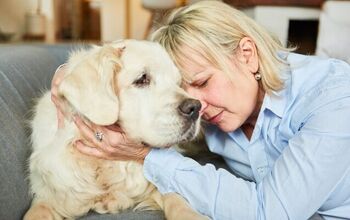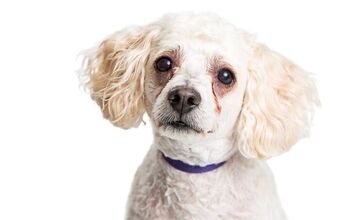Do Dogs Sweat?

As the hot summer months roll in with a bang, you might find yourself drenched in sweat. With the climate going haywire, it is a common thing all across the world. While trying to cool down, you might be wondering if your pet is doing the same– do dogs sweat like humans do? To answer this question, it is important to understand how dogs regulate their body temperature and to dive deep into the intriguing aspects of canine physiology.
Do Dogs Sweat?
Humans have a well-developed system of sweat glands that are distributed across the skin’s surface. These glands are known as eccrine glands and they play a crucial role in thermoregulation by secreting sweat, which cools down the body as it evaporates. Dogs, however, have a totally different “mechanism” for managing heat.
Of course, they also have sweat glands, but these are primarily located in their paw pads. They are called merocrine glands and are similar to human eccrine glands but are less numerous and less effective at cooling the body. While doggos can produce a small amount of sweat through their paw pads, it is still not enough to significantly impact their overall body temperature.
So how do they cool themselves? Well, the primary way dogs regulate their body temperature is through panting. When a dog pants, it rapidly breathes in through the nose and out through the mouth, allowing moisture to evaporate from the tongue, mouth, and upper respiratory tract. This process effectively dissipates heat and cools the dog down. Panting also increases the airflow over the moist surfaces, enhancing evaporation and heat loss.
Besides panting, dogs can also rely on other behaviors to stay cool. These include seeking shade, lying on cool surfaces, and drinking water. Of course, you can help them by providing plenty of fresh water at all times, for which a pet water fountain might be handy. The same goes for shade and cooling, whether at home or away. You can use a dog cooling mat to keep your pet chilled and comfy even when you’re traveling. You should also make sure that your pet avoids strenuous exercise during hot weather.
Apart from merocrine glands in the paw pads, dogs also possess apocrine glands, which are located throughout their body. These glands are primarily associated with scent marking and do not play a significant role in thermoregulation. Apocrine glands secrete a thick, oily substance that contributes to a dog's unique scent, which is important for communication and territorial marking.
Understanding that doggos do not sweat like humans is very important for preventing heat-related health issues. Dogs are more susceptible to heat stress and heat stroke than humans are, especially in hot and humid conditions. When a dog’s body temperature rises to dangerous levels, heat stroke becomes a serious threat, as all their cooling mechanisms become overwhelmed.
Signs of a heat stroke in dogs include excess panting, rapid heartbeat, drooling, lethargy, and collapse. If you spot any such symptoms in your dog, it is crucial to take immediate action by moving the dog to a cooler area, providing water, and seeking veterinary assistance.
It is also important to note that certain dog breeds are more sensitive to heat due to their physiognomy. Brachycephalic breeds, such as Bulldogs, Pugs, and Boxers, have shorter snouts and narrower airways, making it more difficult for them to pant effectively. These breeds are at a higher risk of overheating and require extra care during hot weather.
The same goes for dogs with thick, double coats, like Huskies or Malamutes. Regular grooming and trimming, as well as ample shade, will ensure that these dogs remain safe and comfortable.

A proud mama to seven dogs and ten cats, Angela spends her days writing for her fellow pet parents and pampering her furballs, all of whom are rescues. When she's not gushing over her adorable cats or playing with her dogs, she can be found curled up with a good fantasy book.
More by Angela Vuckovic

























